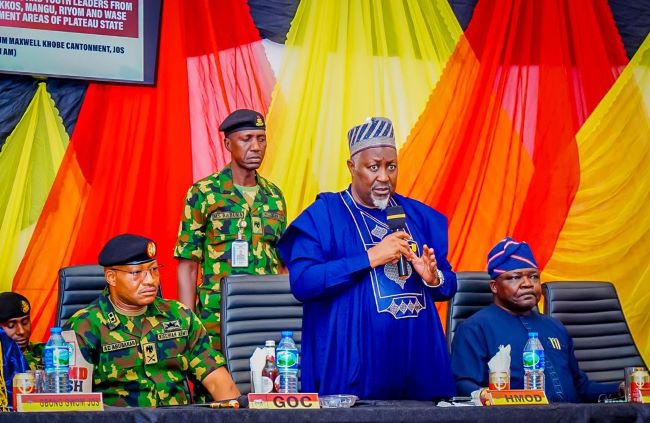In a country facing numerous security challenges, former Jigawa state governor, and Nigeria’s Defence Minister, Mohammed Badaru, has stepped into a crucial role in the battle against insecurity. His approach combines strategic planning, community involvement, and a steadfast dedication to ensuring the safety of all citizens.
By Abdallah el-Kurebe
Strategic Initiatives and Collaboration
Under Badaru’s leadership, the Nigerian armed forces have ramped up their efforts to tackle insurgency, banditry, and various forms of violent crime. He understands that security isn’t just the military’s job; it requires collaboration with civilian groups as well. By promoting partnerships between military and community members, he aims to enhance intelligence sharing and community policing, empowering citizens to become active participants in the fight against insecurity rather than passive observers.
Empowering Local Communities
A key part of Badaru’s strategy is empowering local communities to serve as the first line of defense against insecurity. By working closely with traditional leaders, community heads, and local vigilante groups, he fosters a grassroots approach that encourages residents to take charge of their safety. This model not only helps gather vital intelligence but also builds trust between the armed forces and the communities they serve, creating a sense of security essential for national stability.
Morale Boost for Security Personnel
A key aspect of Badaru’s leadership has been his focus on boosting the morale of security personnel. Recognizing the challenges faced by troops on the frontlines, he has implemented programs to enhance their welfare and psychological well-being. This includes improving living conditions in barracks, providing mental health support, and ensuring timely payment of allowances. By prioritizing the well-being of military personnel, Badaru not only strengthens their resolve but also cultivates a motivated and dedicated force ready to tackle insecurity head-on.
Embracing Technology in Defense
Recognizing that threats are constantly evolving, Badaru has prioritized incorporating modern technology into Nigeria’s defense strategies. The use of advanced surveillance systems, drones, and digital communication tools has significantly enhanced the military’s capabilities. With these technological advancements, the armed forces can respond more quickly to emerging threats, ultimately minimizing the impact of violence on innocent lives.
Strengthening Resources and Infrastructure
In addition to strategic initiatives, Badaru has been a strong advocate for increased funding and resources for the military. This includes upgrading equipment, improving living conditions for troops, and ensuring they receive adequate training and support. His commitment to enhancing the operational capacity of the armed forces is vital in addressing insecurity effectively.
Commitment to Accountability and Transparency
Badaru recognizes that combating insecurity is not just about military strength; it’s also about maintaining public trust. His administration has introduced measures to ensure accountability within the armed forces. By fostering a culture of integrity and responsibility, he aims to prevent corruption and misconduct that could undermine military effectiveness and erode public confidence.
Finally, Mohammed Badaru’s dedicated efforts in tackling insecurity in Nigeria reflect a comprehensive approach that blends strategic planning with community engagement, technological innovation, resource allocation, and accountability. As Nigeria faces its security challenges head-on, Badaru’s leadership shines as a beacon of hope. His commitment goes beyond policy—it embodies a profound responsibility to meet the aspirations of a populace yearning for peace and stability.
El-Kurebe is a Peace Journalist and Editor-in-Chief of ASHENEWS and THESTORIES


